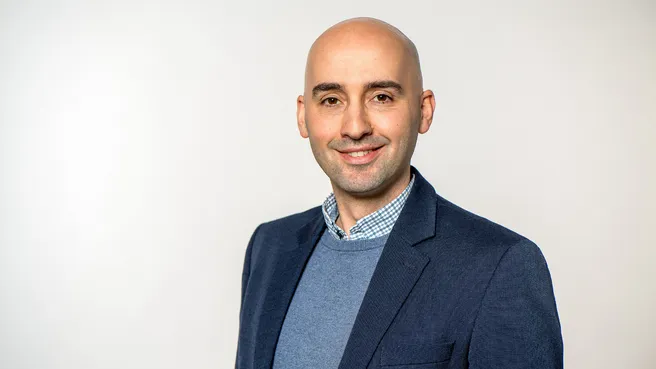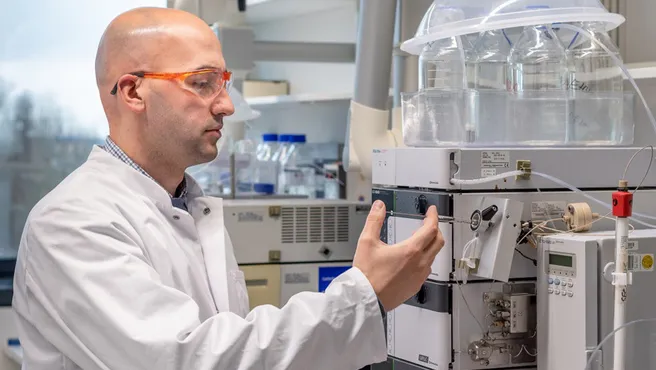Professor Svilenov’s research group focuses on biopharmaceutical technology, specifically on the development of therapeutic proteins used in the treatment of diseases. These proteins are produced in mammalian cell culture. “Using various analytical methods, we gain crucial insights into how these new proteins and manufacturing processes function. These insights facilitate the development new medications,” explains Svilenov.
In 2024, he received an ERC Starting Grant for his research, one of the most prestigious European science awards given by the European Research Council (ERC). This award supports outstanding scientists, encouraging fundamental research, visionary projects, and the development of new interdisciplinary fields of knowledge.
What fascinates Hristo Svilenov in particular about his field?
“Biopharmaceutical technology is a multidisciplinary and dynamic field with many opportunities for translational research, which can contribute to the development of new medicines. In my field, I can make a tangible difference for society and have a positive impact on people’s health," the professor explains. Translational research serves as a bridge between the lab and the patient’s bedside, aiming to convert findings from basic research into practical applications as directly and quickly as possible. For Professor Svilenov’s research group, this means contributing to the development of new treatment methods in the form of new medications and technologies.
What is the new professor looking forward to most in his work at the Freising campus?
Professor Svilenov studied pharmacy at the Medical University of Sofia and defended his doctoral thesis in pharmaceutical technology at the Ludwig Maximilian University of Munich in 2019. After a postdoctoral stay at the Technical University of Munich from 2020 to 2021, he was appointed Professor of Biopharmaceutical Production Technology at Ghent University in Belgium. In September 2024, he took up the professorship for Biopharmaceutical Technology at the TUM School of Life Sciences.
“Sometimes life’s best opportunities arise completely unexpectedly. When I moved from Munich to Ghent a few years ago, I never thought I would see beautiful Bavaria again. So, I am very excited to return now and to make the Weihenstephan campus my new home. The TUM campus in Freising is, of course, a global beacon for the life sciences and biopharmaceutical research, and I am proud to be part of it now. I am especially looking forward to collaborating and exchanging knowledge with the esteemed faculty and to supporting and mentoring students and emerging talents,” summarizes Hristo Svilenov, expressing his enthusiasm about returning to TUM.

